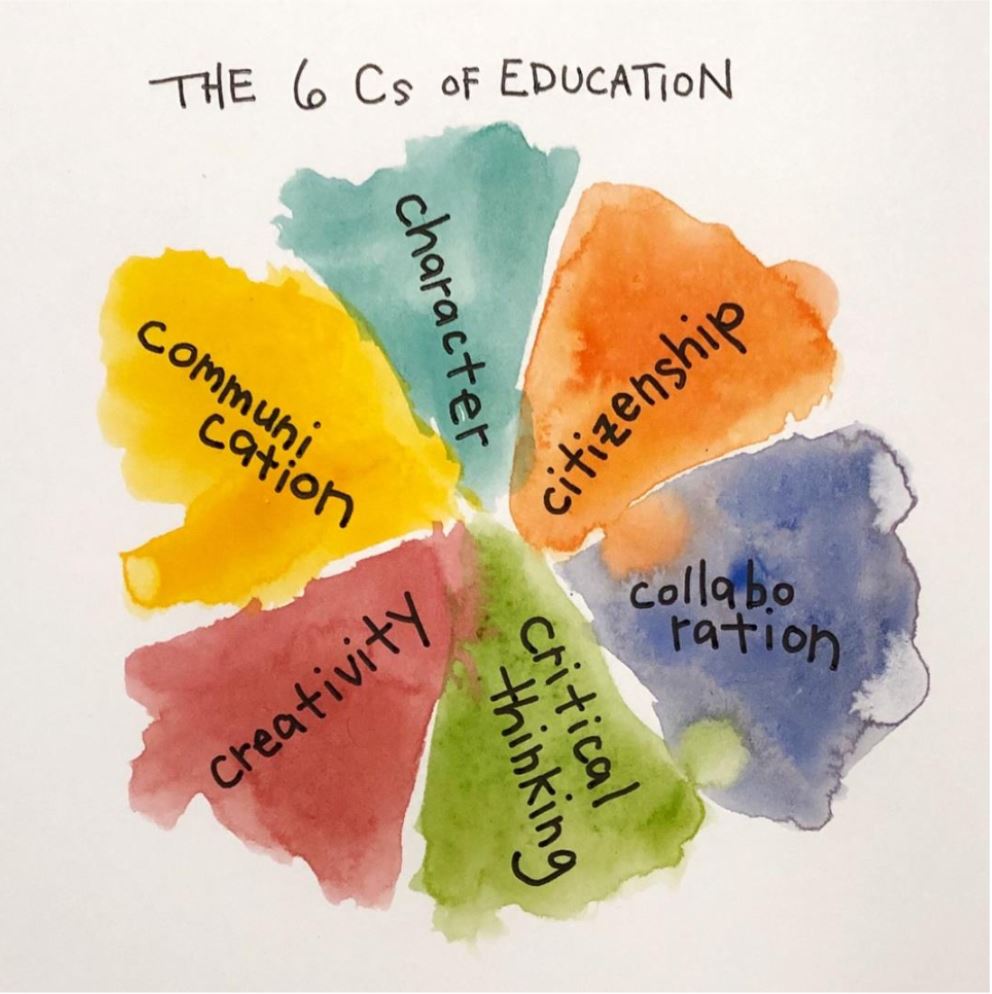The 6C's: Deep Learning Competencies
What is the Importance of Fostering the 6C's in the Classroom?
Check out this video:
How are the 6C's Demonstrated?
Character Education: one of the female students in the video chose the topic of Autism. She connected with professionals in the field and mentions she may be interested in pursuing a career or helping those with autism in the future.
Citizenship: the students are developing both primary and secondary research skills. The students are also able to develop and improve upon their technological skills.
Communication: sharing information with each other, their teacher, professionals (as they were communicating in the video).
Critical Thinking & Problem solving: the students choose their topic and their teachers challenge them to expand their knowledge on the topic through ‘deep thinking.’ Students are working to find solutions to the challenges they are being presented with based on their topic (i.e. bone integration).
Collaboration: students were contacting professionals (i.e. the male student and the palaeontologist) based on the topic they were studying.
Creativity & Imagination: they have the choice to choose the topic promoting autonomy and allowing them to be more innovative and creative.
 |
| https://skooler.com/the-6-cs-of-education/ |
These competencies as displayed in the video, are very important for a learner in the 21st century. Skills such as creativity, imagination and critical thinking are so important to foster in the classroom because everything today is automated. I think back to my high school experience and I was much more reliant on my teacher for knowledge then students are today. Machines and technology have answers must faster than the teacher, however, machines cannot solve problems critically with creative approaches. In the video, we saw how engaged and invested the students were in their learning. As educators, we need to consider the 6C’s when planning our lessons to prepare our students to be successful in the future. Corresponding with advancements in technology, it is much easier today to network and communicate. As we saw in the video, the students were reaching out to professionals related to their projects.
I believe these competencies impact teaching Junior Learners because as the educator, I should be comfortable with not knowing everything. My role as an educator is to facilitate, support and challenge the students to solve problems and engage in “deep thinking.” I am there to help guide them on the right track, decode challenges and push them to become the best version of themselves. These competencies allow classrooms to become an environment where teachers and students are learning together. The skills in these competencies are so important to implement at the Junior level so that students can improve upon these as they enter the intermediate and senior grades. Last year while teaching grade 9 math, every Friday we would have “Fun Friday” (although, I don’t know if all of them would have the same definition of fun as myself). I would pose the students with an inquiry question related to the lessons and they wold have the period to figure out a creative approach or solution. The problems would not be too easy or too difficult. The students would collaborate with each other and use technology and the vertical learning boards to present their findings.
How will you incorporate the 6C's in your classroom?
Comments
Post a Comment